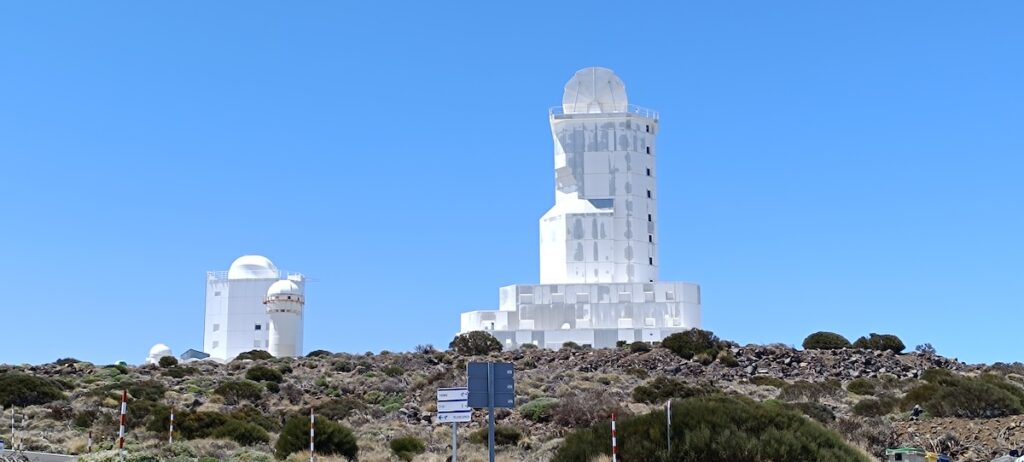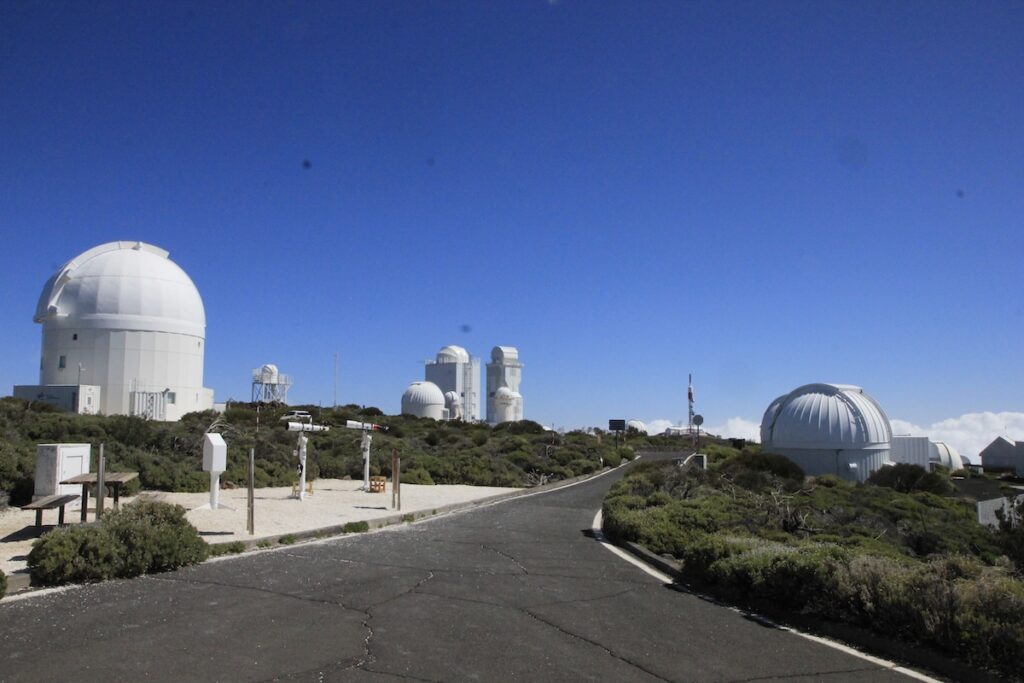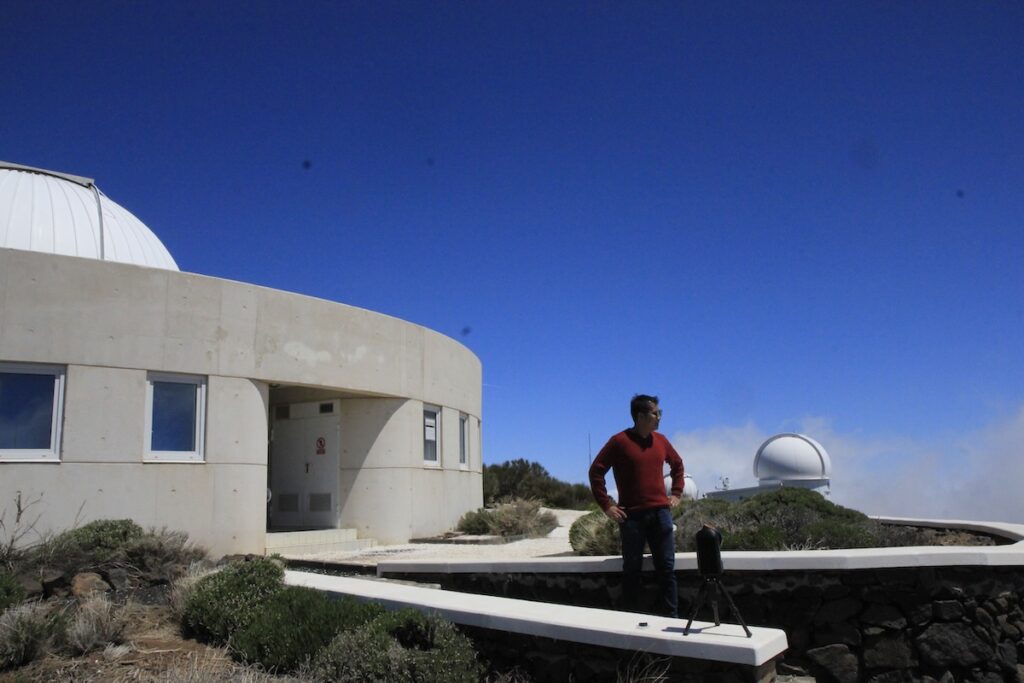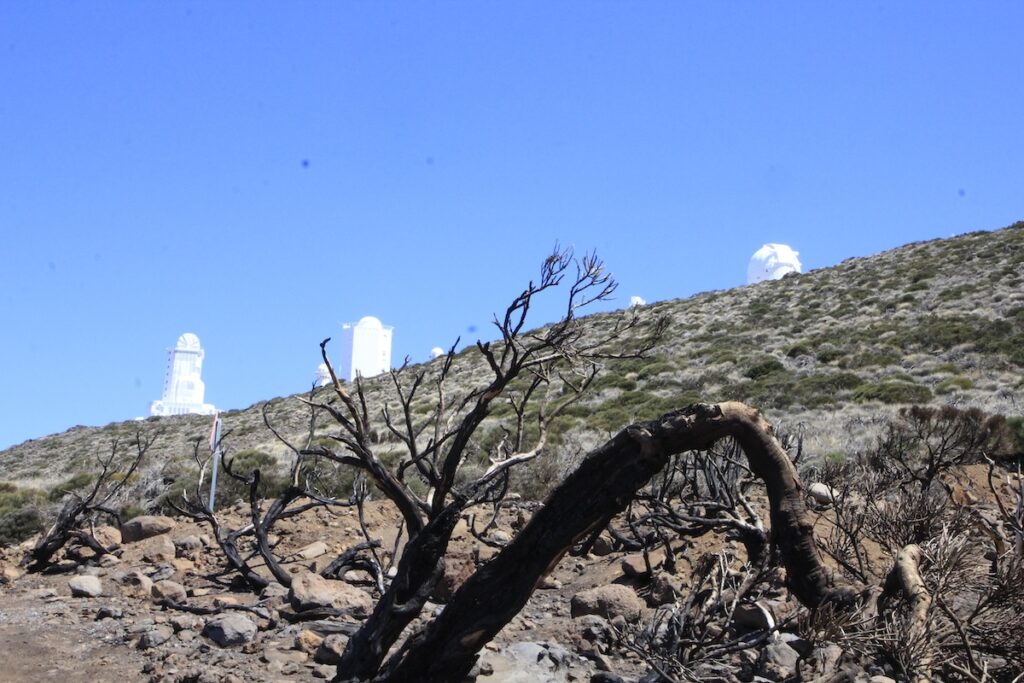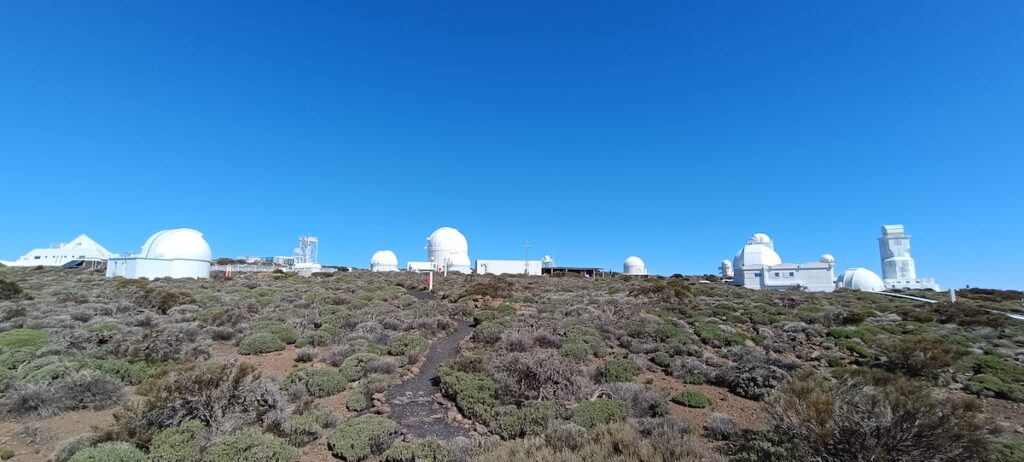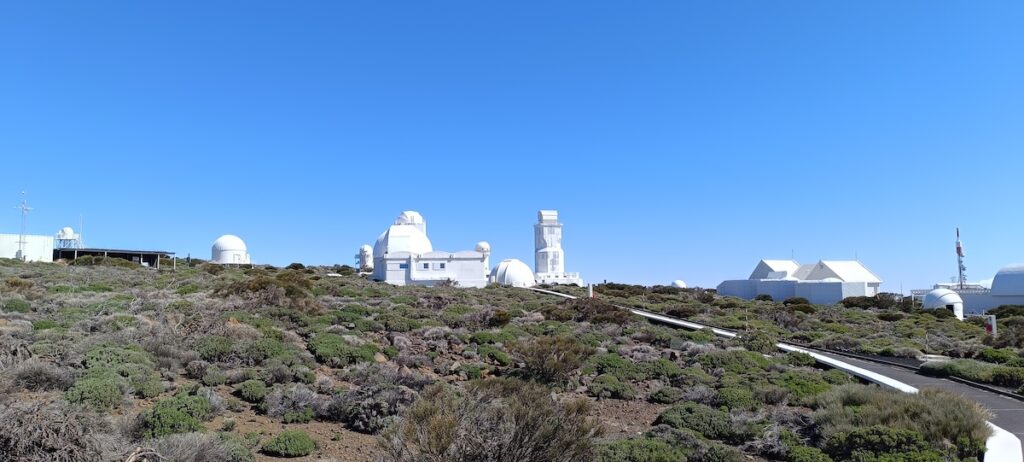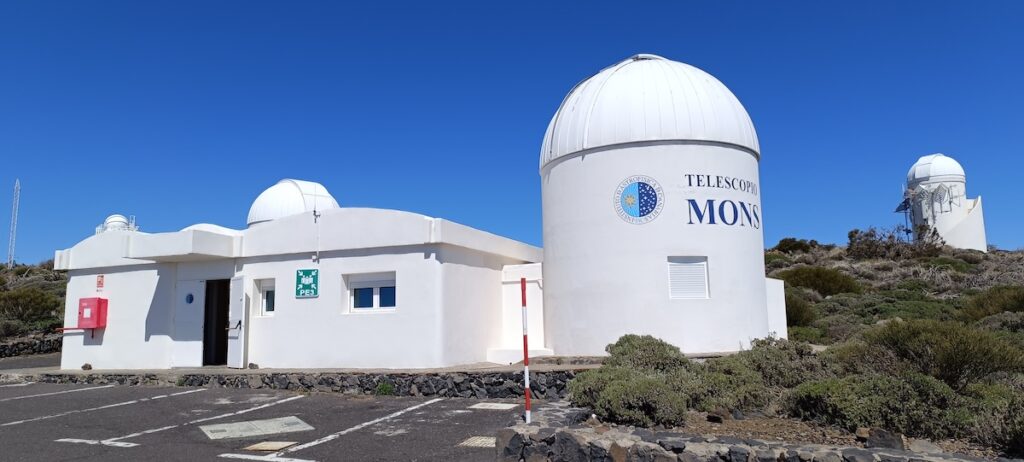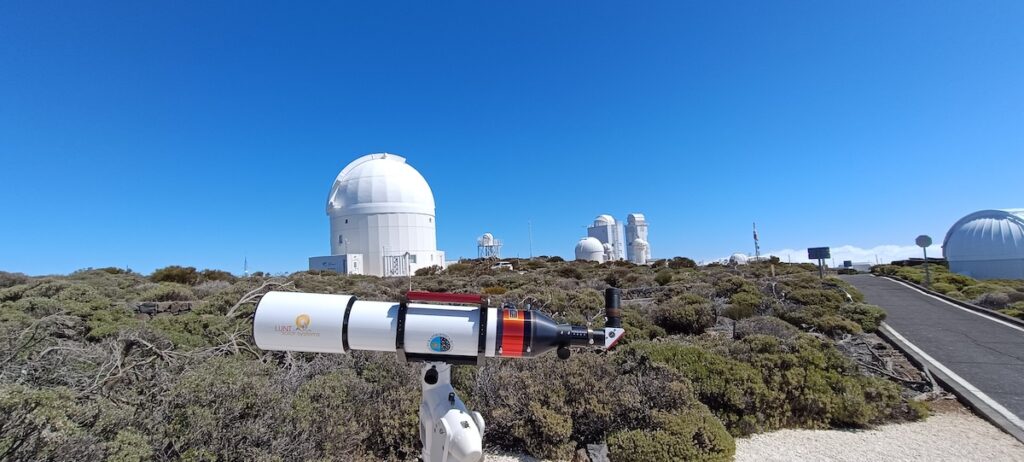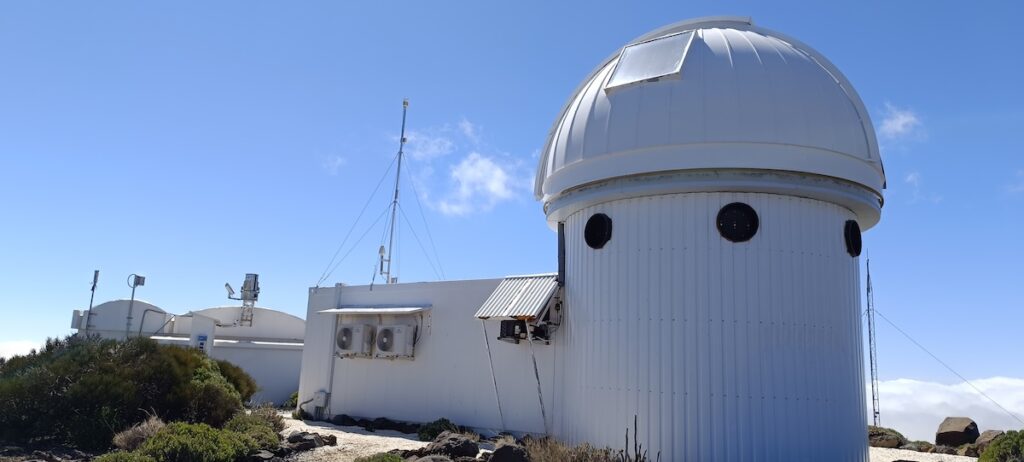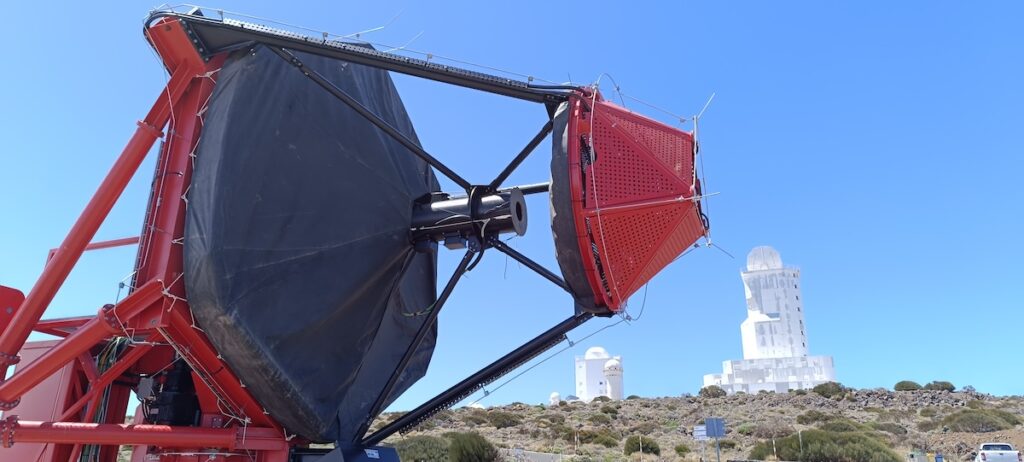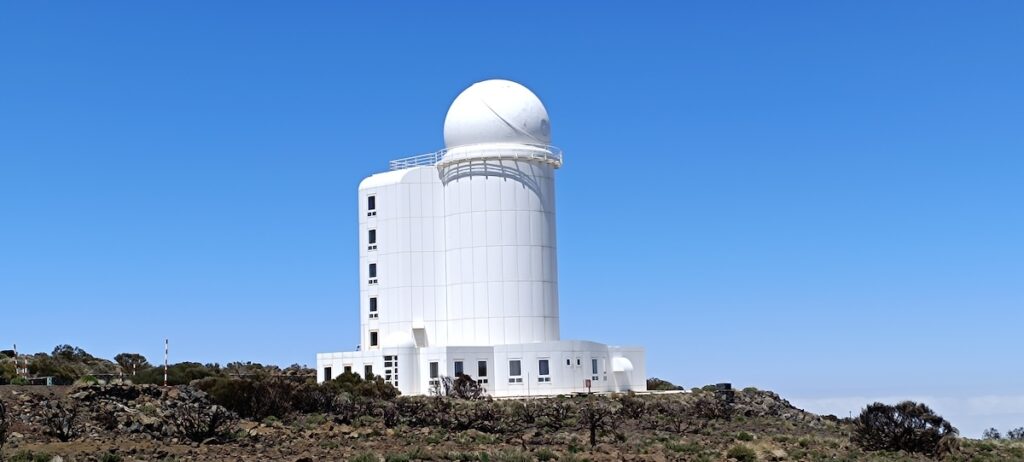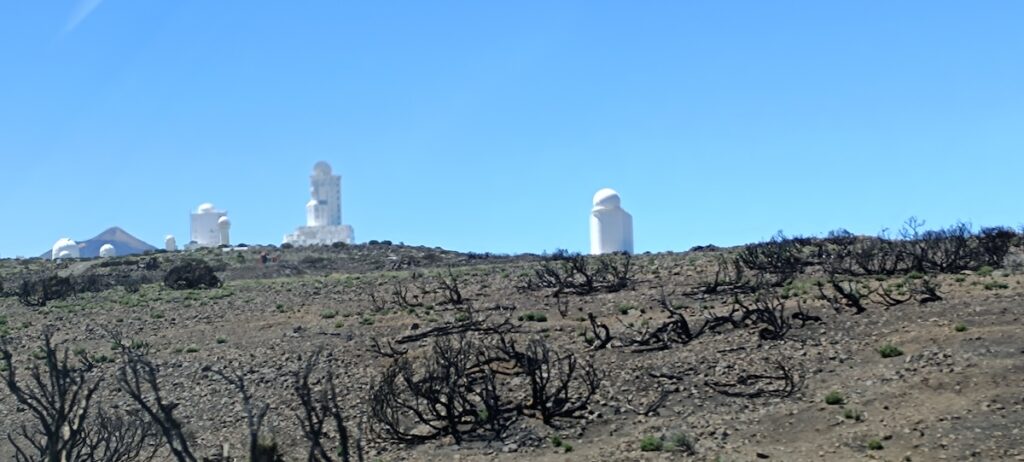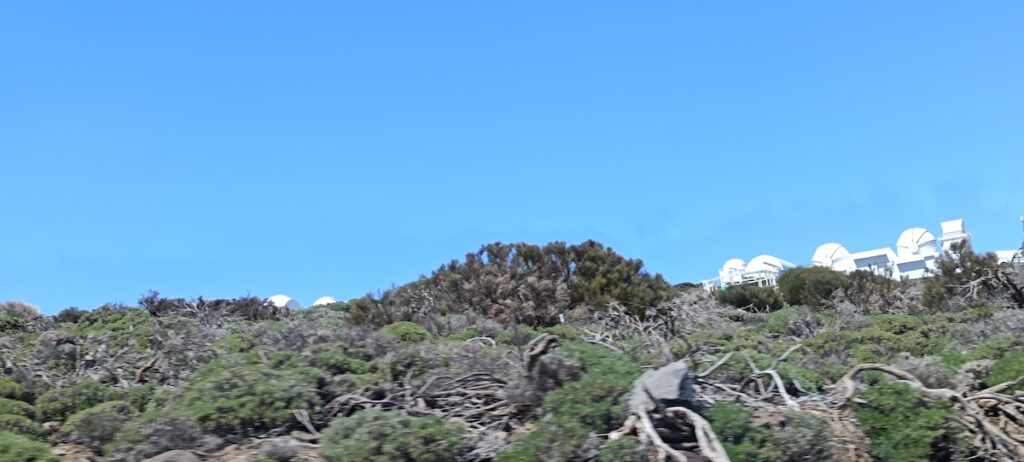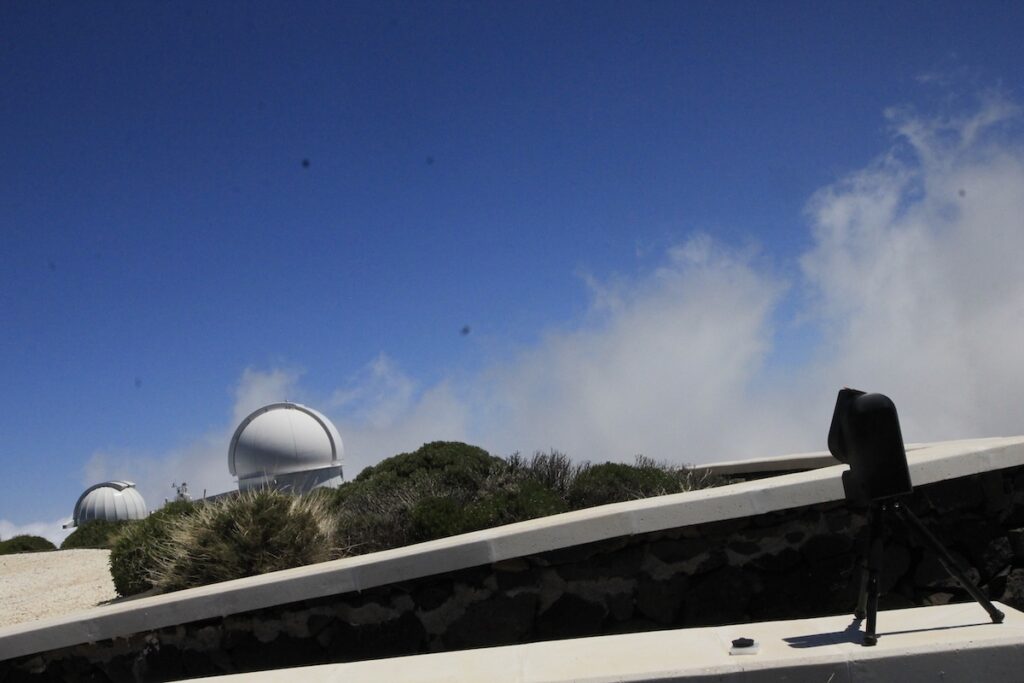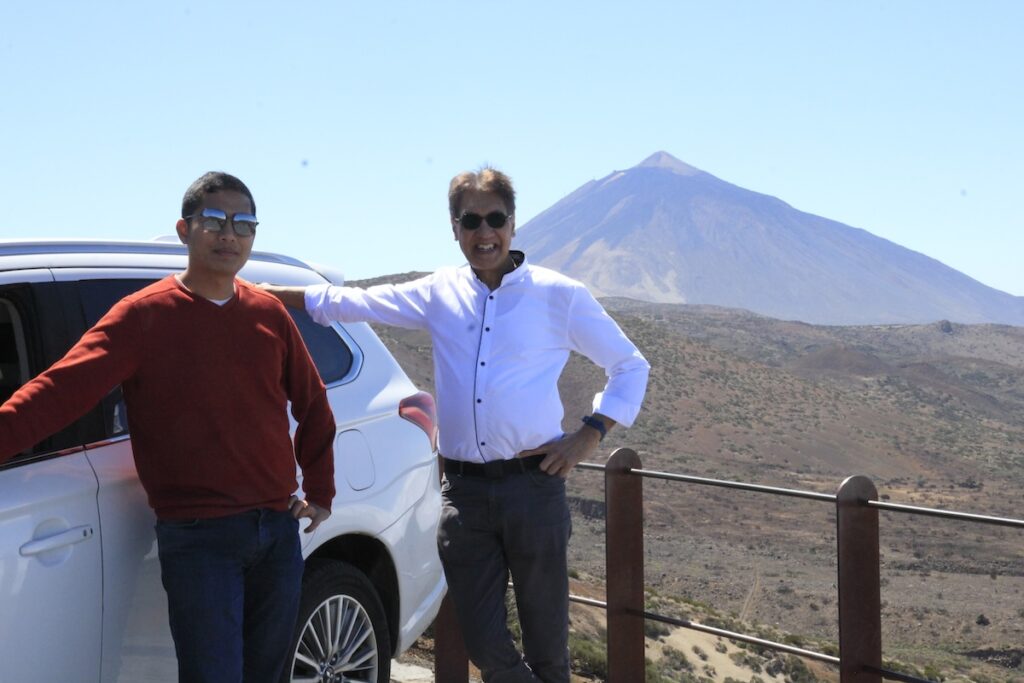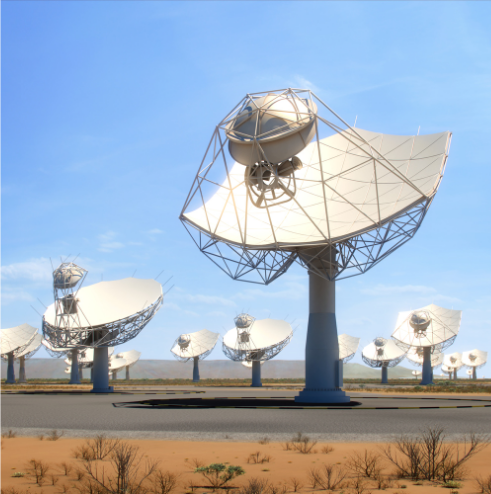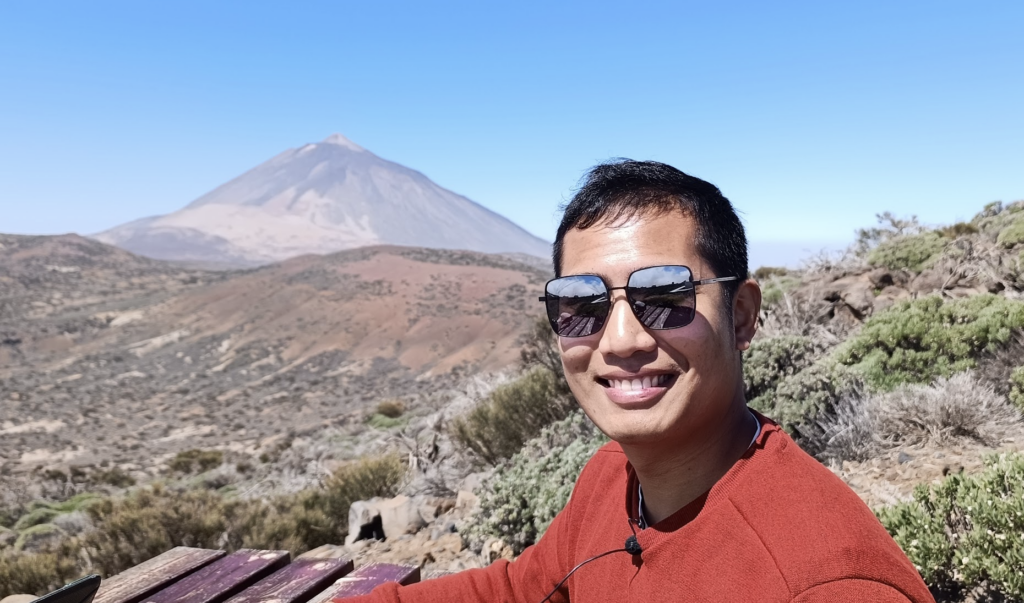
This episode was recorded at the Mount Teide Observatory with Jerry Zhang, a final year PhD student under the supervision of Professor Eduardo L Martín and Dr Nicolas Lodieu at the Instituto de Astrofísica de Canarias. This class of object had been predicted for a long time but was first detected in 1995 from an observation conducted at the Mount Teide Observatory by a team of observers, including Jerry’s supervisor, Eduardo L Martín.
Jerry’s research focuses on Brown Dwarfs. Astronomical objects are somewhere in between stars and planets. Typically, their size is that of Jupiter, around 150,000km and a mass of between 15 and 70 times that of Jupiter. With such low mass (less than 0.08 of our sun), they can never reach the temperature or pressure in their cores necessary for nuclear fusion. They can never shine like our sun. They remain dim and small (brown and dwarf) throughout their lifetime.
Jerry’s most recent publication, arising from his Phd research, records the first detection of methane in an extreme metal-poor T dwarf.
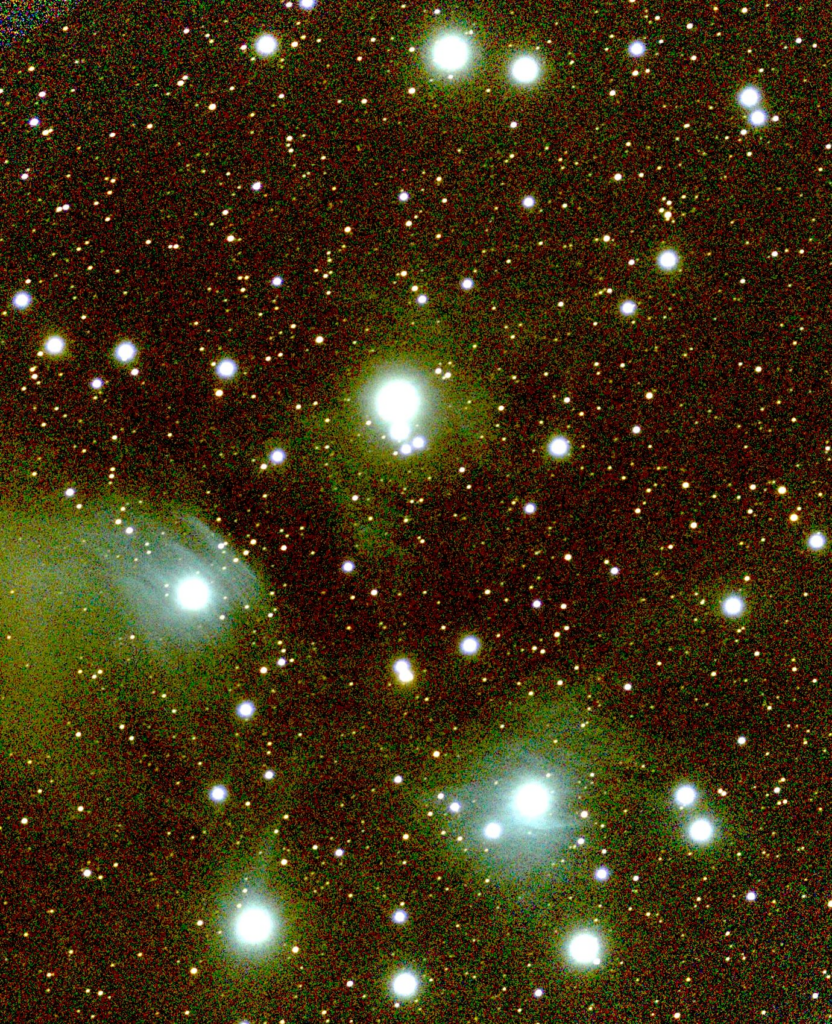
Credit: Author using Seestar S50
Podcast: Play in new window | Download (Duration: 1:06:17 — 61.9MB) | Embed
Subscribe: Apple Podcasts | Spotify | RSS | More
